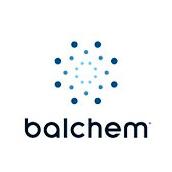N.Z. Cattle Treatment May Boost Milk, AgResearch Says
Published: June 11, 2008
Source : Bloomberg.com
The study with Ancare Scientific Ltd. will take a year and cost more than NZ$500,000 ($377,000), West told journalists at the opening today of the nation's Fieldays agricultural fair. The product may lift milk production as much as 10 percent, Ancare Scientific Managing Director Colin Harvey said in a telephone interview from Auckland.
New Zealand is the world's largest dairy exporter and accounts for about 40 percent of the global trade in milk powders, butter and cheese. The nation is also the largest producer of sheep meat and kiwifruit, and agriculture accounts for about 38 percent of the country's $104 billion economy.
"It's an exciting deal,'' West said. "If it works in a large-scale, real-world farming situation, it will be a truly significant technology in global dairying.''
The product being trialed would be given to cows in the dry season to stimulate milk production, Ancare's Harvey said. Being natural and non-hormonal should make it attractive to regulators and end-users, and commercial development may be three to five years away, he said. Ancare Scientific's products are distributed by animal-treatments maker Merial Ltd.
Role for Science
The Ancare trial is an example of the science New Zealand will need to use to remain competitive in international markets, West said. Half the nation's merchandise exports depend in some way on pastoral farming, he said.
Fieldays, the southern hemisphere's biggest agricultural fair, attracts as many daily visitors as the three-day World Ag Expo hosted annually in Tulare County, California. The two-yearly Sima expo in Paris and Germany's annual Agritechnica event in Hanover are the largest agricultural fairs.
This year's event may host a record number of overseas visitors as surging food prices and rising pressure on global land and water boost interest in New Zealand's farm methods.
Executives and farmers from Mongolia to Germany will join an estimated 125,000 local visitors for the four-day event at Mystery Creek near Hamilton in the dairy-rich Waikato region, organizers say. Sales may total NZ$330 million.
New Zealand's high-tech industry "is the way forward for developing nations,'' said Harsev Singh, head of dairy development at India's Reliance Industries Ltd. "Improving productivity of animals is very important to ease the pressure, and demand, on food,'' said Singh, who's come from Gurgaon, near New Delhi.
Food Demand
World prices for rice, wheat and milk powder have surged to records in the past year, stoking concerns about a global food crisis. Food output must rise 50 percent by 2030 to meet the projected jump in demand, United Nations' Secretary-General Ban Ki-moon told an emergency summit earlier this month.
Market forces will eventually increase global food production, New Zealand's Prime Minister Helen Clark told a lunch time crowd at the event. The country must invest in its food sciences now to prevent it becoming "stranded'' as a low-value commodity producer as rival production increases, she said.
New Zealand, a nation of 4.3 million, exports about 95 percent of its dairy output and about 80 percent of its lamb production. Its farmers receive no state subsidies and compete internationally despite high tariffs blocking access to some markets.
Without Subsidies
"We can learn things from New Zealand in terms of farming without any support from subsidies,'' said Udo Folgart, a dairy farmer from Schonwalde-Glien in Germany. Measures to cut environmental impacts are also of interest, said Folgart, who's vice-president of the nation's Farmers Association.
The European Union, which plans to end farm subsidies by 2015, provides growers with 43 billion euros ($67 billion) in support. The U.S. Congress last week approved a $289 billion farm bill.
To be sure, the intensification of farming in New Zealand is not without cost. The pace of development of large-scale dairying, which has increased average farm output by Fonterra Cooperative Group farmers 25 percent the past five years, is straining water supplies in parts of the country, Parliamentary Commissioner for the Environment Jan Wright said in an October report.
Ecologically, New Zealand's milk and meat is expensive to produce, said West of AgResearch, which is a sponsor of this year's Fieldays event. Consumers globally are increasingly aware of the sustainability of the products they are buying and industry will have to work harder to reduce the impact of their production.
"We've got to reduce the footprint whilst improving the productivity, and that is a big ask,'' he said.
Source
Bloomberg.comRelated topics:
Recommend
Comment
Share

Would you like to discuss another topic? Create a new post to engage with experts in the community.




.jpg&w=3840&q=75)